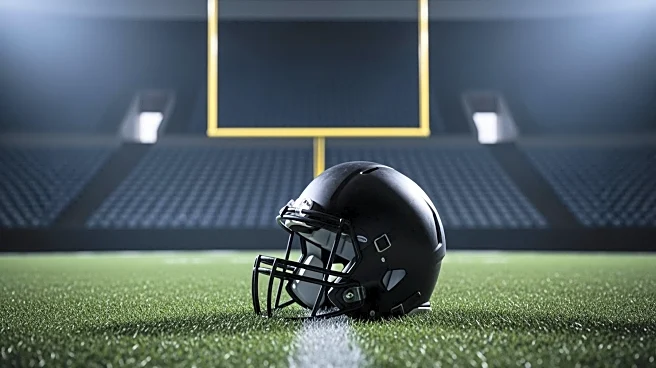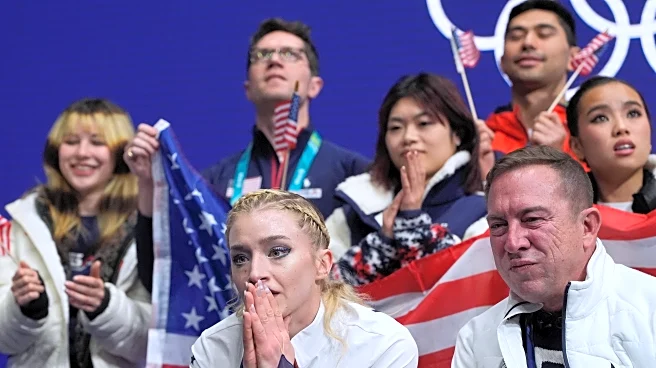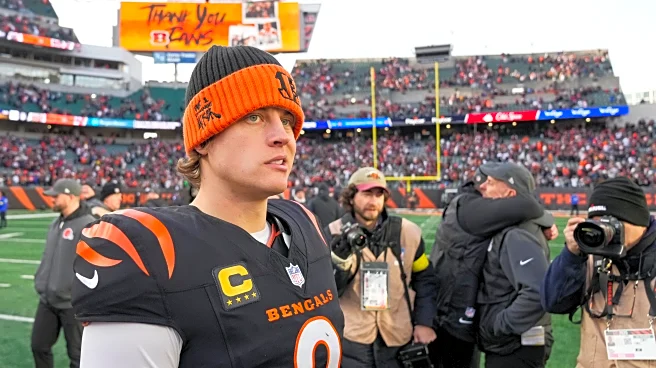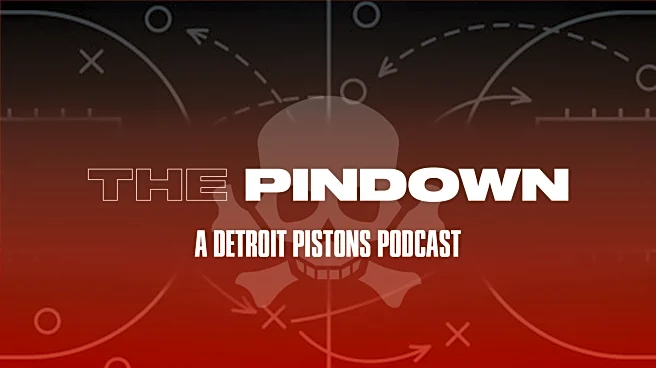What's Happening?
Marshawn Kneeland, a promising NFL player, died in November 2025 during a police chase in Texas. The incident is being investigated as a suicide. Kneeland, who was born in Grand Rapids, Michigan, and played for Western Michigan University, was drafted
by the Dallas Cowboys as a defensive end. He had recently scored his first NFL touchdown against the Arizona Cardinals. Two days after this achievement, Kneeland was involved in a traffic stop initiated by the Texas Department of Public Safety (DPS) for a violation. He fled the scene, leading to a police chase. His vehicle crashed on the Dallas Parkway in Frisco, Texas. Three hours later, DPS aircraft discovered his body, with officials stating he died from a self-inflicted gunshot wound. The circumstances surrounding his death remain unclear, including whether there was any exchange of gunfire or if Kneeland was alone at the time.
Why It's Important?
Kneeland's death highlights ongoing concerns about police pursuit protocols in the United States. The incident raises questions about the necessity and safety of high-speed chases, especially for minor offenses. This tragedy has sparked public debate on whether law enforcement should adopt nationwide guidelines to manage vehicle pursuits more safely. The case also underscores the mental health challenges faced by athletes, particularly in high-pressure environments like professional sports. Kneeland's death is a significant loss to the NFL community and serves as a reminder of the importance of mental health support for athletes.
What's Next?
The investigation into Kneeland's death is ongoing, with authorities seeking to clarify the events leading up to his death. The incident may prompt further discussions among lawmakers and law enforcement agencies about revising pursuit policies to prevent similar tragedies. Additionally, the NFL and other sports organizations might consider enhancing mental health resources and support systems for players to address the pressures they face both on and off the field.
Beyond the Headlines
This incident could lead to broader discussions about the role of mental health in sports and the responsibilities of sports organizations to provide adequate support. It also highlights the potential consequences of high-pressure careers and the need for comprehensive mental health strategies. The case may influence future policy changes regarding police pursuits and mental health awareness in professional sports.















